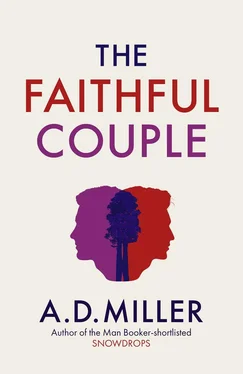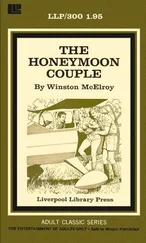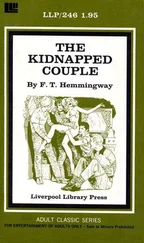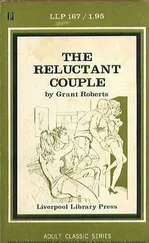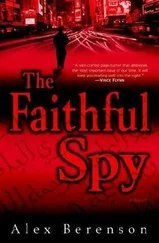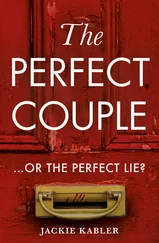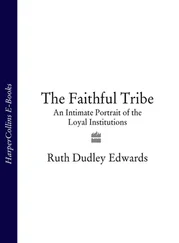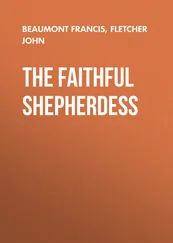He went back to the Home Office to pitch for a contract at Croydon. Chatting awkwardly to old comrades, he wasn’t sure whether to think of them as victors or as inmates: whether, in careers as in a battle, the people who survived were the strongest and the bravest or, on the contrary, the most cowardly. Whether he had escaped or failed. He saw Heidi in the lift, but other people crowded around them. She blushed, fixedly watched the numbers ticking down to G , and strode off when the doors opened, with only a curt, eye-contact-less ‘Bye’.
After a year he was summoned to Hardy’s office, and when he arrived found Laurel in there too. He glanced rapidly between them, looking for the driving-examiner smile.
‘This is perfectly normal —’ Laurel said.
‘This is absolutely routine,’ Hardy cut in, Laurel switching on a Zen grin to smooth over the interruption. They explained that Adam’s temporary contract would be rolled over for another year. The same thing happened the following year. In his more sanguine moments he would still glance up the ladder, at job titles with the prefix Senior or even Director of , but at others he peered downwards to the abyss, and was grateful to have his lowly rung to cling to.
They had lunch at the café by the lake, cold meats that the children wouldn’t eat and Coke they weren’t supposed to drink. Afterwards they played babyfoot , like a family in an advert, Adam’s eyes meeting Claire’s as they registered the idyllic tableau. This is us . He whispered to Harry to let Ruby win, as he wished he had let Harriet win, once or twice, at table tennis or Risk. His son tried to comply, for a goal or two, but in the end he couldn’t manage the self-effacement.
After the game Harry announced that he wasn’t tired and fell asleep in the shade. Claire sat on a lounger to brush Ruby’s beautiful hair.
Adam put on his Crocs, and the sunglasses that were the marker of sexual self-respect among young parents, and absconded for a walk along the shore. He hummed to himself, then sang aloud: ‘Well I’m runnin’ down the road tryin’ to loosen my load / I’ve got seven women on my mind.’ His happiness anthem. Away from the road and the café the lakeshore became wilder, rockier, unkempt, bottles and plastic bags and a lone flip-flop nestling in the crevices. But further along the rock gave way to a flat, curated stretch of sand, possibly attached to a hotel, though Adam couldn’t see one among the trees.
Two young boys were playing bat and ball. An elderly couple dozed under a parasol like effigies of themselves. A young woman in a white bikini, sunbathing alone on a towel, sat up to remove her top. She was a pretty brunette, painted toenails, firm, catwalk breasts. Nineteen, Adam estimated, or thereabouts. The fidgeting of her hands behind her back drew his eyes but he forced them away.
Adam watched as two men walked towards her, whispering. She was lying on her back, topless, and didn’t see them approaching. One produced a camera from a pouch around his neck; the other arced around the girl, using that studiedly casual, faintly comic, half-jog, half-stride gait that some people employ if the lights change while they are crossing a road.
The second man stood next to the girl, grinning. The first man raised his camera.
‘Hey,’ Adam shouted. ‘ Non .’ He shooed them away with the back of his hands, as you might a wasp or a stray dog.
The girl sat up and saw the three of them. She tried to shield her breasts with a forearm as she rushed into a T-shirt, gathered her belongings and stalked up the beach towards the trees, one foot stumbling in the sand as she passed the second stranger. Adam wanted to shout after her that he was trying to help, but his schoolboy French deserted him, she was gone too quickly, tripping again on the root of a pine tree but keeping going, escaping, this time, into the shadows.
The two men drew together and conferred, hands cupped to their mouths like conspiring tennis partners. They were younger than him, with the pointlessly bulbous muscles of gym enthusiasts, the wirier of the two, the man with the camera, somehow the more concerning.
Adam stood his ground, bluffing, wondering whether he had been rash to intervene. The comatose pensioners and the bat-and-ball boys would be no help. He thought of the wasteful casualties of nightclub altercations and road rage incidents that he occasionally read about. He was grateful for his sunglasses, which masked the fear that must be glowing in his eyes. He held the wiry man’s gaze.
They couldn’t read him, or they were bluffing themselves. They scowled, the wiry one spat on the sand, and they walked slowly away in the other direction.
Adam exhaled. He looked towards the old people for acknowledgement or approbation but they hadn’t stirred.
He turned to rejoin his family, scrambling back across the rocks, thinking of Ruby yelling ‘Higher!’, of she and Harry swimming back to Claire on the shore. He thought of the girl on the beach in Tenerife, struggling with her towel beneath the yellow parasols, he and the cameraman watching through the viewfinder. He thought of the girl by the lake in Yosemite, her head buried in the water as she swam, how she slicked back her hair and grinned. Two men were watching her, and one of them was him.
They were eating ice creams at the café when he got back. The wind had picked up; Claire was wearing a sarong. She gestured that it was time to go, thumb pointing back over her shoulder towards the car park, as in an old disco move.
They packed up their things and made for the hire car. Adam drove them out through the forest and across the farmland beyond. They passed war memorials, a sacked castle, a place where, so Claire’s guide book informed them, heretics had once been burned at the stake. They were safaris of pain, these holidays in gory old Europe. So much cleaned-up blood and forgotten loss.
Adam still wondered about her. Not every day, nor even each week, but she would reappear at intervals, reliably incessant, and he was almost glad, sometimes, when she did. The memory of her had become a proof of who he was, a continuity between his forty-year-old incarnation and his younger self. Or, rather, she was a memory of a memory, since Adam understood that, after this much time, a person could only be an idea, as perhaps she always had been. He thought of her father, too, sometimes. You do your best, Eric had lamented, you think you’re doing right , and Adam saw that he, at least, had tried to.
Of course he wished it hadn’t happened. He wished he had blown the whistle that night ( My girl. You believe it? ), that there had been no reason to excoriate him in the morning. Not speaking up was the most reprehensible action, or inaction, of his life. All the same, the obsession had eased. The whole episode was regrettable, horrible even, but also ancient and, like those medieval atrocities, almost impersonal, another Adam as well as a bygone Rose. He couldn’t have known then what he understood now, about daughters and about permanence.
The guilt he still felt had a new focus. In the end, Adam reminded himself as he drove from the lake to the restaurant, It wasn’t me . It wasn’t him who had taken the girl into the tent that night. That fact was a partial mitigation, but also, now that he finally came to accept it, a kind of reproach.
It wasn’t Adam. It wasn’t Rose. It was Neil.
More than once, in the months immediately after their quarrel, Adam had considered contacting Neil, to let him know he had been right after all: his text had been prescient, no harm had been done, not to Adam and Claire at any rate. His email would be impersonal, caustic. If Neil replied, Adam would delete the message without reading it.
Читать дальше
